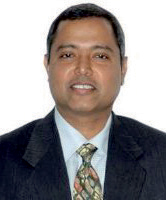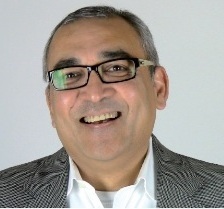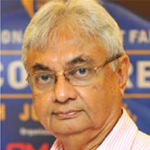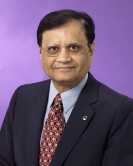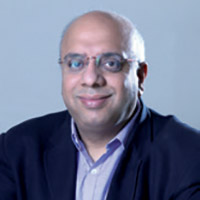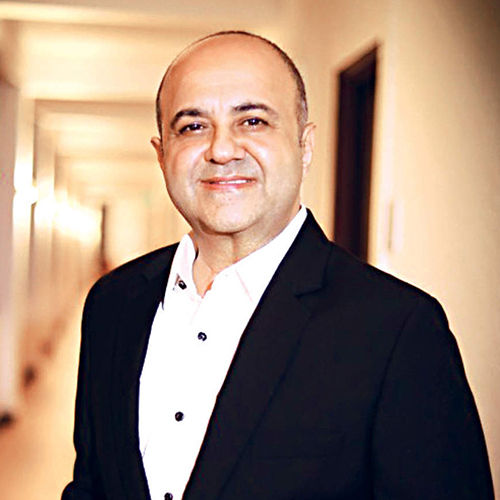
Kamal Khushlani
CEO
Mufti
Deliver strong homegrown brand rooted in ‘Indianness’
Based out of Mumbai, Mufti is a men’s clothing fashion brand. In an interview with Fibre2Fashion, the owner of the brand speaks about the brand’s legacy, its retail presence as on date and the innovative approaches taken by it to attract customers during the pandemic.
Fibre2Fashion: What inspired you to start your own brand? Do you have a background in fashion as well?
Kamal Khushlani:
I couldn’t pursue my studies after my graduation as my father passed away when I was 19 years old. I always wanted to do something big in life. A commerce graduate with no formal education in fashion but a flair for it and a passion to make it big, I could see that there was a huge gap for fashionable clothing in menswear in India in the early 90’s. What I had were dreams, desires and I had just discovered a market which was hitherto untapped. What I didn’t have however, was capital. So I started off by borrowing ₹10000 from my aunt. I wouldn’t be the man behind Mufti if my entrepreneurial skills weren’t encouraged by my aunt! If you’re wondering about Mufti’s humble beginnings, well, music is how it all began. Growing up as a teenager during the musical era of the 80s, it left a deep impact on my mind. As we all have our favourite bands, mine at that time was an American Pop band named Mr. Mister. No prizes for guessing that in 1992, when I started making men’s shirts, it was under the name Mr. Mister and I hit the ground running. We grew from strength to strength and six years later, Mufti was launched.
F2F: How has your company progressed in terms of overall business?
KK:
We started off by selling only to multi-brand outlets. We then found the opportunity to sell to large format stores as well. It wasn’t until 2006 that we entered retail. Today we sell to 1200+ MBO’s, 120+ large format stores and 300+ exclusive brand outlets.
F2F: Which city/state outlet gives you the maximum business?
KK:
We are prominent in all markets around India. However Pune does exceptionally well for us.
F2F: How much percentage of your total sale does online platform contributes?
KK:
Roughly 12-15 per cent.
F2F: Is there any specific fabric that you liked the most and that has been a signature in all your garments?
KK:
One of the main points of focus at Mufti, when it comes to fabric, is ‘India appropriate’ weights, even while responding to global trends. Traditionally flannel and corduroy tend to be heavier fabrics, making them difficult to wear in most parts of India, even in the winter. Mufti’s version of these traditionally heavier fabrics is lighter and far easier to wear in the Indian climate. Besides this, we offer a large variety of lightweight shirts, ranging from the relaxed casual Cambric, to the authentic casual lightweight slub-textured cottons, to the Chic Urban Casual Cotton Lawn.
F2F: Where does your brand stand when it comes to global market?
KK:
In the context of Indian retail, Mufti offers global trends rooted in a sense of Mumbai, our Muse, at highly competitive prices when compared to our international counterparts.
F2F: How has pandemic affected your brand and what innovative approaches have been undertaken?
KK:
F2F: How do you include sustainability in your fashion creations?
KK:
The apparel industry has always been highly resource hungry. At every level, whether it’s the polyester in the buttons, to the amount of water consumed in washing a pair of jeans, we are constantly exploring new ways to reduce waste, optimise output, and not compromise on quality. The most recent steps have been towards reducing wet process cycle times in jeans washing units through the innovative use of laser and ozone technologies, to reduce our carbon footprint.
F2F: How do you keep up with the competition? What makes your brand stand out?
KK:
Our focus has never really been on keeping up, but rather on staying ahead. We look at ourselves as our own competition. We ensure we provide the customer with something better than the previous season. We have successfully been ensuring that our customers are always delighted.
F2F: What is your vision for your label for forthcoming years? Will you be expanding into other clothes category like women's wear, kidswear or any other area of textile?
KK:
Our vision is to deliver a strong homegrown brand rooted in its ‘Indianness’, while being global in our delivery.
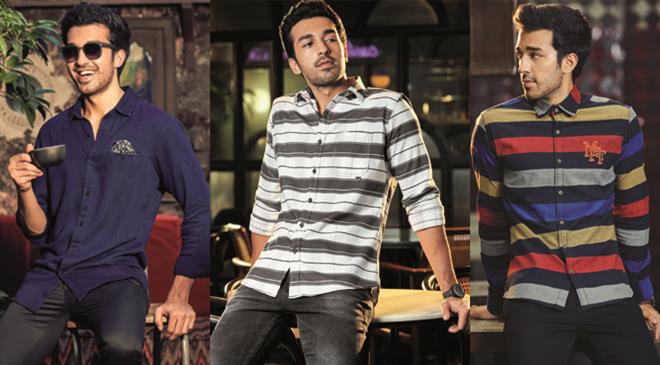
Rahul Mehta
Abhay Gupta
Arun Sirdeshmukh
Gabi Seligsohn
Aseem Prakash
Rahul Mehta
Pradip Mehta
Bill D’Arienzo
Anurag Batra
Fanny Vermandel



_8.JPG)

